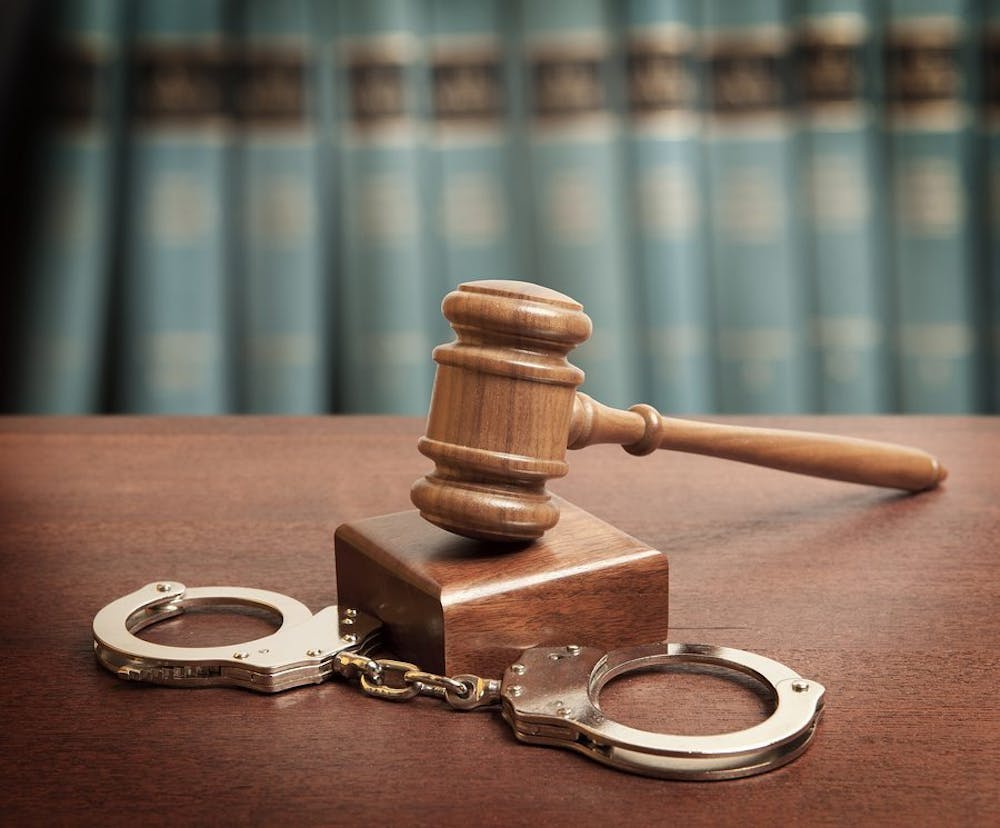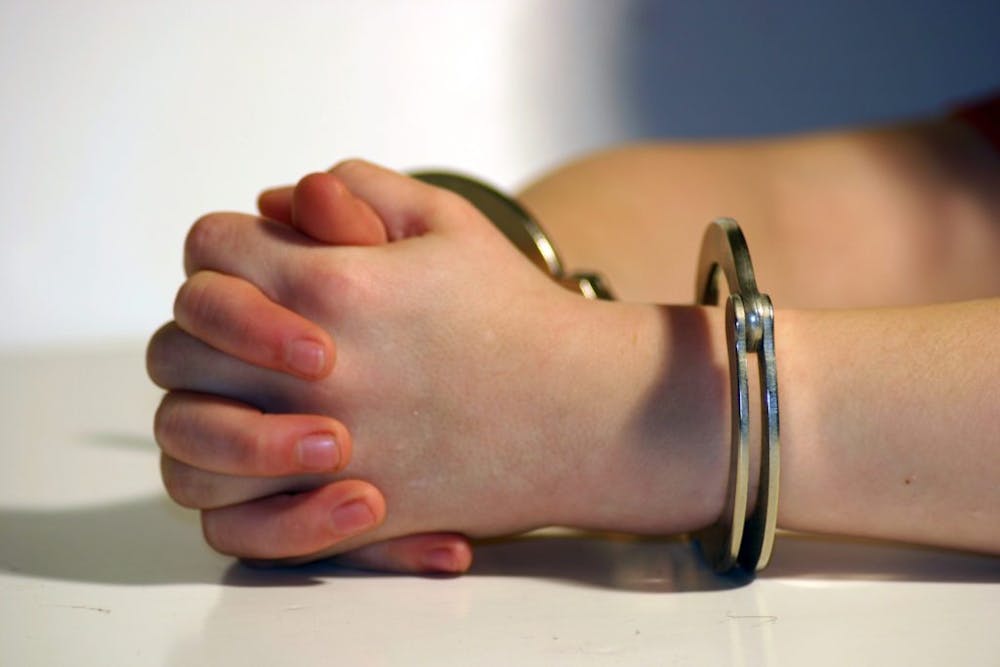As any experienced Ventura criminal defense attorneycan tell you, many criminal cases in California (and nationwide) never make it to the trial stage. There are numerous reasons criminal charges might not reach trial, such as being dropped or dismissed beforehand. But who has the authority to dismiss or drop criminal charges in California? What is the difference between these two outcomes? And, perhaps most importantly, what are some reasons a criminal charge or case might be dropped or dismissed in the first place?
What is the Difference Between Dropping and Dismissing Charges?
The terms “dismissed” and “dropped” charges are often paired together, and some people even use them interchangeably. However, these two terms are not quite synonymous. While it’s true that dropping and dismissing charges are similar in that neither result in the conviction of the defendant, there’s also an important distinction to be made: charges can be dropped prior to or after they have been filed, whereas a case may be dismissed only after charges have been filed.
Another term you might hear is the word “acquittal.” An acquittal does not mean that a case will be dismissed, or that charges will be dropped. When a defendant is acquitted, it means he or she was tried and found not guilty. While a defendant who has been acquitted may be tried in the future for a crime of the same nature, they cannot be tried twice for the same incident. This is due to the Double Jeopardy clause of the Fifth Amendment to the United States Constitution, which famously provides that no defendant may be “subject for the same offense to be twice put in jeopardy of life or limb,” meaning no defendant may be tried twice for the same alleged criminal act.
It’s important to point out that retrials – which become necessary when a “hung jury” cannot unanimously agree that the defendant is guilty beyond a reasonable doubt, thus leading to a mistrial – are not barred by the Double Jeopardy clause. Because the original trial failed to result in an acquittal or conviction, the protections of the clause do not apply in this scenario.

Can a Crime Victim Decide to Drop Charges Against the Defendant in California?
It’s a common scene in Hollywood legal dramas: the victim of the alleged crime has a change of heart and calls the defendant to say they have “decided to drop the charges.” Unfortunately, it’s not that simple or easy in real life.
Contrary to what countless movies and TV shows would have you believe, only the prosecutor possesses the legal authority to have criminal charges dropped in California. While the prosecutor may certainly listen to the complainant’s concerns and take their input into consideration, the decision to drop charges ultimately falls to the prosecutor alone. If the prosecutor believes that pursuing the case is in the interest of justice, that is what he or she will do, regardless of the complainant’s personal desires.
A case can be dismissed by the prosecutor or by the court hearing the case. A skilled California criminal defense attorney can increase the odds of your case being dismissed by filing a pretrial motion to dismiss the case or cancel (set aside) the complaint following the arraignment, an early step of the criminal court process in which the defendant:
- Is formally notified of the charges.
- Is formally notified of his or her Constitutional rights.
- Enters a plea (guilty, not guilty, no contest/nolo contendere).
A “motion” – or, to be more specific, a pretrial motion – is simply a request to the court. For example, a “motion for change of venue” is a request to move the trial to a different location. With regard to case dismissals, your Santa Barbara criminal lawyer may be able to file a motion to dismiss, or “995 motion,” named for Cal. Penal Code § 995, depending on the circumstances. Under Cal. Penal Code § 995, an attorney may raise a 995 motion if there was no probable cause, the existence of which is an issue decided by the judge at a hearing called the preliminary hearing or, for obvious reasons, the probable cause hearing.
Police officers must have probable cause to believe the suspect committed the crime in order to make a lawful arrest in California without a warrant. Probable cause must be evaluated by a judge on a case-by-case basis, but generally speaking, can be defined as tangible, factual information or observations that would lead a reasonable person to suspect a crime had been or was in the process of being committed. If the judge does not find probable cause at the preliminary hearing, there is not sufficient evidence for the case to proceed, and the charges must be dismissed. However, the standard of proof needed to establish probable cause is less rigorous than the standard of proof (“beyond a reasonable doubt”) needed for a conviction.

5 Legal Reasons Criminal Cases Get Dismissed or Dropped in California
Lack of probable cause for an arrest is not the only reason a court might decide to dismiss a case, nor are the complainant’s wishes the only factor a prosecutor might weigh when considering whether to drop criminal charges. On the contrary, there are many reasons either of these outcomes could occur. Five examples are listed below.
- Expired statute of limitations. The statute of limitations is a critical concept that arises in both civil and criminal law. In civil law, it is the deadline for the plaintiff to file a lawsuit. In criminal law, it is the deadline for the prosecutor to charge a defendant with committing a crime. Each crime is subject to a different statute of limitations, and some extremely serious crimes, such as murder, do not have any statute of limitations at all. It is an affirmative defense to state that the prosecutor is attempting to charge a “stale case” (a case for which the statute of limitations has expired).
- Lack of witnesses. If the charge is of a nature that conviction hinges heavily on witness testimony, inability to locate or contact a key witness could dramatically weaken the prosecutor’s case against the defendant. Even if the prosecutor does not want to drop the charges, such a situation may force them to do so.
- Missing, inadequate, or illegal evidence. The standard of proof in a criminal case is extremely demanding. Whereas a civil case requires only a “preponderance of the evidence,” meaning a greater than 50% chance the defendant committed the tort, a criminal case requires “proof beyond a reasonable doubt.” If even a single juror feels, based on the evidence presented, there’s a reasonable chance the defendant is innocent, the juror must give the defendant the benefit of the doubt. Because the standard of proof is so high, reliance on skimpy or shaky evidence can cause a prosecutor to drop charges. Likewise, evidence obtained through illegal actions (e.g. breaking into the defendant’s home, threatening a suspect during interrogation) is inadmissible.
- Prosecutorial misconduct. Most prosecutors are highly ethical, but, as in any profession, there are always a few individuals who try to bend the rules. Serious misconduct could result in charges being dropped or dismissed. Some examples of prosecutorial misconduct include racial profiling, using falsified evidence, and abetting the use of unlawful surveillance techniques.
- Violations of the Double Jeopardy clause. As we explained a little earlier, the Constitution protects defendants who have already been acquitted against facing renewed prosecution for the same offense, though not the same type of offense alleged on a separate occasion. This prohibition prevents the relentless harassment of defendants (and, on a practical level, helps to ease court congestion).
Contact a Ventura Criminal Defense Attorney for a Free Consultation
If you, your spouse, your parent, your daughter, or your son was arrested for a felony or misdemeanor in California, it is critically important to immediately start reviewing your legal situation with a highly experienced Ventura County criminal attorney. While it’s never easy to confront such a stressful situation, procrastinating will only make the likely outcome worse. The sooner you consult with a criminal defense lawyer in Santa Barbara, the sooner you can begin reviewing your options and putting together a legal strategy.
The criminal lawyers at the Law Offices of Bamieh & De Smeth, PLC have more than 20 years of experience representing defendants arrested for misdemeanors and serious felony crimes. We handle a wide range of criminal offenses, including but not limited to:
- Assault and Violent Crimes
- Simple Assault
- Aggravated Assault
- DUI (Driving Under the Influence/Drunk Driving)
- DUI with Alcohol
- DUI with Drugs
- Refusal to Submit to a Breathalyzer Test
- Drug Crimes
- Drug Manufacturing
- Drug Trafficking
- Possession of Drug Paraphernalia
- Possession with Intent to Distribute (PWID)
- Simple Possession
- Homicide Crimes
- Manslaughter
- Murder
- Vehicular Manslaughter
- Juvenile Crimes
- Disorderly Conduct
- Shoplifting
- Trespassing
- Vandalism
- Sex Crimes
- Lewdness
- Prostitution/Solicitation of a Prostitute
- Rape
- Sexual Battery
- Statutory Rape
- Theft, Robbery, and Burglary
During our decades practicing criminal law, we have earned a reputation for being tough and aggressive courtroom opponents. Our innovative, respected legal team approaches every case with a tailored strategy oriented toward protecting the defendant’s best interests. We will do everything in our power to have the charges against you dropped, or have your case dismissed altogether.
Call the Law Offices of Bamieh & De Smeth, PLC right away at (805) 643-5555 for a free, completely confidential legal consultation with a Ventura County criminal defense attorney. Our experienced criminal defense attorneys serve Santa Barbara, Oxnard, Thousand Oaks, Simi Valley, Camarillo, Newbury Park, and Moorpark.


